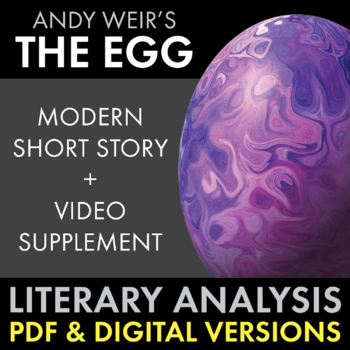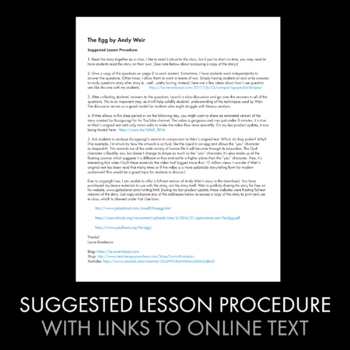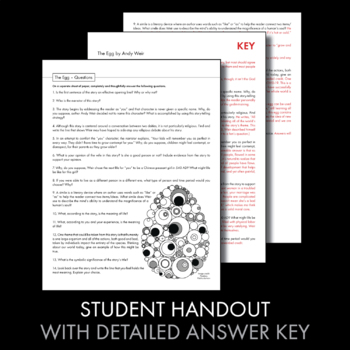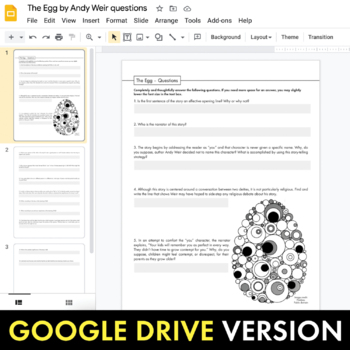The Egg by Andy Weir Modern Short Story + Media Analysis PDF & Google Drive CCSS
- PDF
- Google Apps™

What educators are saying
Description
Looking for a short story from a modern writer that’ll get students reading and thinking? “The Egg,” a short story by The Martian author Andy Weir, will hook teens’ attention and hopefully inspire them to think deeply about how we treat each other.
Although not particularly religious, the story centers around a God figure talking to his supernatural child. The story includes a bit of science fiction and a bit of philosophy. It’s just under 1,000 words, a very short read.
In this 45-minute lesson, students will sharpen their analysis skills by digging into Weir’s text, identifying literary devices, and making modern connections to the enlightening tale.
This lesson includes:
• 1 page detailed lesson plan notes with online links to the short story and video supplement
• 1 page literary analysis handout featuring depth-of-knowledge questions that require students to analyze the text as well as make modern connections to Andy Weir’s story (a Google Drive version of this question set is included)
• 2 pages of a detailed answer key to help you easily grade students’ work and guide in-class discussion
If you want to make sure the story is a good match for your classes before purchasing these lesson materials, please access a copy of Weir’s story here on his website: http://www.galactanet.com/oneoff/theegg_mod.html
Want to expand this lesson to include an author biography? Click here to download a student-led author bio. research activity: https://www.teacherspayteachers.com/Product/Andy-Weir-Author-Research-Grid-The-Egg-The-Martian-Author-Bio-PDF-Google-9028865
Want this item plus a whole lot more? Check out my Short Story Unit for Older Teens, a collection of stories and lesson materials designed specifically for high school juniors and seniors. You'll save more than 30% off the cost of those individual items, including the item featured on this page, if you purchase the bundle available here:
Thanks for stopping by!
Cover image: Pixabay, Public domain





